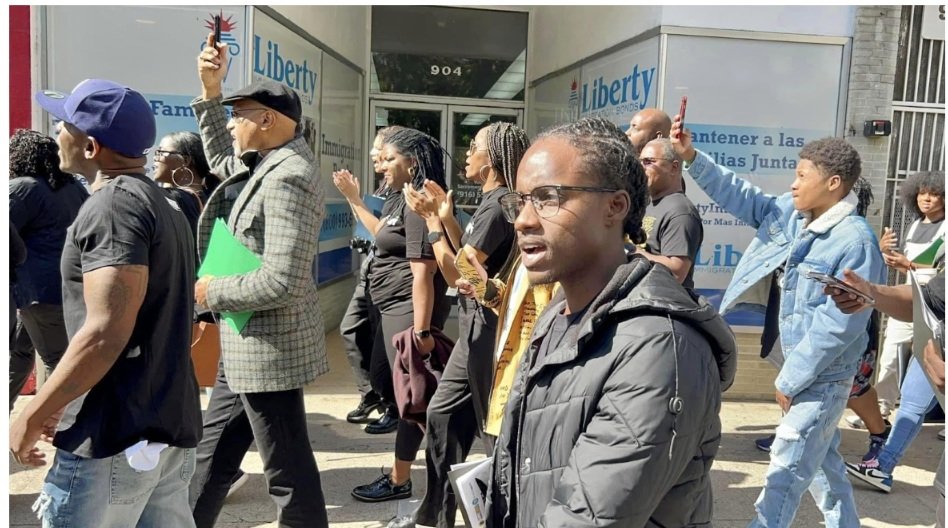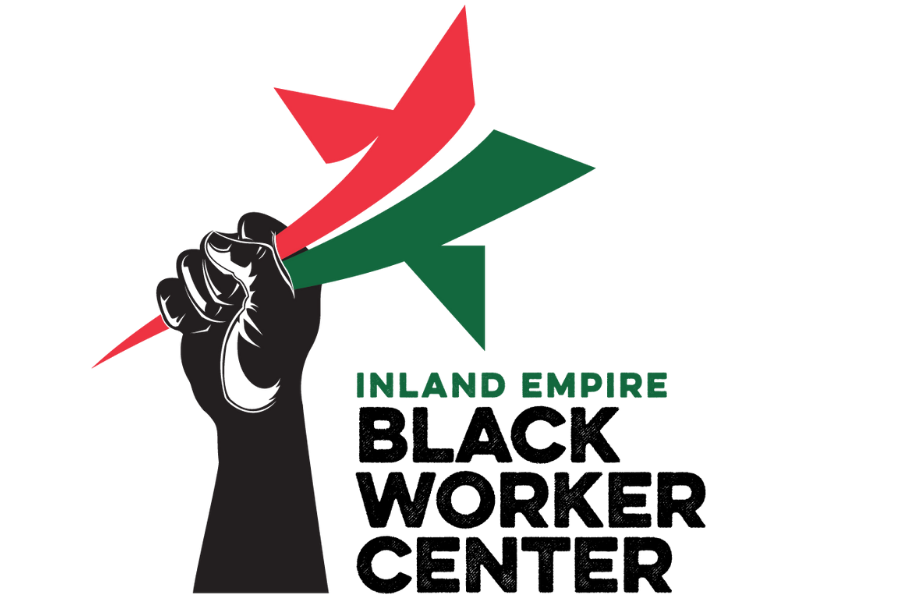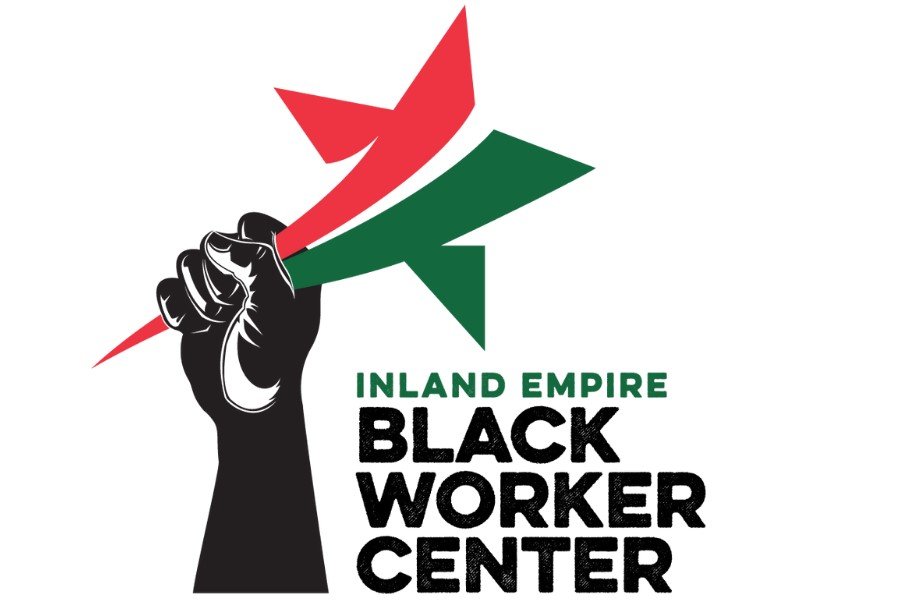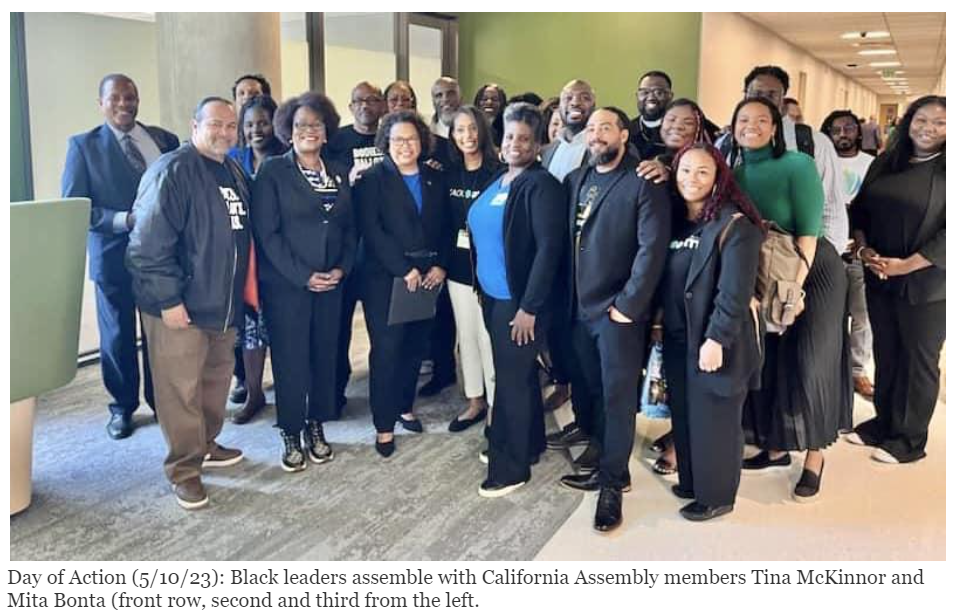Upholding Affirmative Action: A Necessity for a Just Society
Dr. Nosakhere Thomas
IEBWC Executive Director
Introduction
As a Black Worker advocacy organization, the Inland Empire Black Worker Center is committed to fostering social, economic, and racial justice for BIPOC communities. We are deeply concerned about the Supreme Court's potential reversal of affirmative action policies in higher education, as seen in the case of Students for Fair Admissions Inc. v. President & Fellows of Harvard College. This position paper highlights the negative consequences of undermining affirmative action, particularly for Black workers and BIPOC communities, in various sectors including education, corporate America, healthcare, economics, law, and politics.
Background
Affirmative action policies have been implemented to address historical injustices and level the playing field for BIPOC communities. However, as the Supreme Court deliberates on two significant cases challenging affirmative action in college admissions, the future of these policies hangs in the balance. Legal experts suggest that the Court may dismantle parts or all of the system that allows colleges to take race and ethnicity into account during the admissions process. As a result, many educational institutions may be forced to significantly alter their commitment to diversity.
Impact on BIPOC Communities
The elimination of affirmative action policies is likely to exacerbate inequality and disadvantage BIPOC communities even more. Race-neutral admissions standards fail to account for the unique barriers faced by Black and brown students. A range of areas, including education, corporate America, healthcare, economics, law, and politics, will be impacted by the degradation of affirmative action policies. Here is a summary of the potential impacts based on the mentioned reference:
· Education: In the absence of affirmative action, universities may face challenges in creating diverse environments that benefit all students. This could disproportionately affect Black and brown students, who often encounter significant systemic barriers to higher education, and ultimately hinder their employment opportunities in various fields.
· Corporate America: A less diverse educational landscape could result in decreased diversity within corporate workforces, impacting BIPOC individuals' representation and success in various industries.
· Healthcare: A reduction in diversity in higher education may lead to decreased representation and understanding of BIPOC communities in healthcare decision-making roles. This can negatively impact healthcare outcomes for these communities and limit employment opportunities for BIPOC professionals in the healthcare sector.
· Economics: The lack of affirmative action policies may perpetuate economic disparities for the BIPOC community by limiting their educational and employment opportunities.
· Law and Politics: The absence of affirmative action could result in fewer BIPOC individuals in leadership roles within legal and political sectors. This marginalization can further limit their voices, representation, and influence in these areas.
Call to Action
It is now more important than ever for us to raise our voices and demand equality in higher education. We ask you all to stand up for a future where race, ethnicity, and diversity are celebrated rather than disregarded. Here are several ways you can be involved:
· Educate yourself and others about the importance of affirmative action policies for the BIPOC community. Knowledge is power, and understanding the impact of these policies can enhance our ability to effectively advocate for them.
· Speak up against the false narratives and misconceptions surrounding affirmative action. Share your personal stories and experiences as well as the successes of others who have benefited from these policies.
· Reach out to your local, state, and federal representatives to express your support for affirmative action and to call on them to defend these vital policies. They must understand the importance of diversity and equal access to education in building a more inclusive society.
· Stay active on social media, using hashtags like #DefendAffirmativeAction, #StandForDiversity, and #JusticeForBIPOC, to raise awareness and amplify the voices of those who oppose the attack on affirmative action.
· Attend rallies, protests, and events that support affirmative action and the BIPOC community. Show your presence as a powerful voice for change.
Remember, our voices matter, and together we can create meaningful change. Affirmative action is an essential tool in dismantling systemic barriers and promoting equal opportunities. Together, we must stand up to protect affirmative action and fight for a diverse, inclusive future where everyone thrives.
Conclusion
Dismantling affirmative action policies will be a severe blow to the BIPOC communities across various sectors. As a Black Worker advocacy organization, the Inland Empire Black Worker Center stands firm in advocating for the preservation and enforcement of affirmative action policies. These policies are morally and socially essential for a just society and will ensure that all communities have equal access to opportunities, representation, and justice.

Advocating for Justice:
Black Leaders March to the Capitol for Reparations in California
Advocating for Justice: Black Leaders March to the Capitol for Reparations in California
On May 10th, the Inland Empire Black Worker Center (IEBWC) joined over 200 Black leaders from more than 40 Black-led organizations, including the California Black Power Network, LiveFree California, Black Equity Collective, and California Black Freedom Fund, for a Day of Action. During this event, we marched to the Capitol in Sacramento, held a press conference, and met with legislators to advocate for various important causes. These include $100K in funding for Black organizations, reforms in firearms tax (AB 28), prison (ACA 8), affirmative action (ACA 7), policing (AB 93, AB 742), voting (ACA 4, SB 846), housing (AB 1418, SB 567, ACA 10), and reparations (AB 3121) for Black Californians who have been impacted by slavery.
The Inland Empire Black Worker Center, stands in full support of the recommendations put forth by the Task Force to Study and Develop Reparation Proposals for Blacks in California. It is a necessary and crucial step toward rectifying the historical injustices and discrimination faced by Black Californians, which have their roots in slavery.
The task force's recommendations, encompassing compensation for health care disparities, housing discrimination, mass incarceration, and over-policing, are pivotal in acknowledging the long-lasting impact of systemic racism. Recommendations included: (1) Estimated value of payment for health care disparities: $13,619 for each year of residency, based on 71-year life expectancy; (2) Estimated payment for housing discrimination: $148,099 or $3,366 for each year between 1933 and 1977 spent as a resident of the state; and (3) Estimated payment for mass incarceration and overpolicing: $115,260 or $2,352 for each year of residency in California during the 49-year period between 1971 and 2020. Also, the proposal to establish a state office responsible for processing reparations claims and addressing the ways in which current and past policies have harmed and destabilized Black families is essential for restoring justice.
Mere apologies are not sufficient; concrete action must be taken to rectify the damage inflicted upon the Black community. We echo the sentiments of U.S. Rep. Barbara Lee (D-Oakland), who rightly asserts that reparations are not only morally justifiable but also possess the potential to address the deep-rooted racial disparities and inequalities that persist to this day. A public acknowledgement of the state's responsibility for past wrongs, accompanied by a promise to avoid repeating them, must be made in the presence of individuals whose ancestors were enslaved.
We appreciate the inclusion of "cash or its equivalent" as part of the reparations package for eligible residents. Monetary compensation is a necessary component in recognizing the harm endured by Black Californians throughout history. The time has come for the government to acknowledge its role in perpetuating the barriers that have prevented Blacks from attaining full economic, social, and political equality. We implore the Legislature to embrace and enact the task force's recommendations, taking decisive action toward justice and reconciliation.
Regarding eligibility, we propose a tiered structure that prioritizes descendants of enslaved Africans while ensuring inclusivity for all members of the Black community affected by the lingering effects of slavery. All Black Californians who have self-identified as such for a significant period should be eligible to participate in and benefit from reparations programs, investments, and resources. This includes access to free healthcare programs, post-secondary education, reproductive care services, and other community investments.
For individuals who can trace their lineage to someone enslaved in the U.S., special consideration should be granted, entitling them to full compensation without the need for additional documentation. We recognize that various challenges may hinder some from tracing their lineage, such as lost records, adoption history, limited resources, homelessness, or descent from Black immigrants. Therefore, a comprehensive set of criteria, developed in collaboration with Black-led and Black-serving community organizations across the state, should be established to ensure compensation for those impacted by the war on drugs, segregated schools, unjust property takings, redlining, and other outlined harms.
To ensure the inclusion of all residents impacted by the proposed timelines for harm, we recommend a residency requirement not tied to a specific historical event or past cutoff date. Individuals who have resided in California for at least one year preceding the implementation of a compensation program should be eligible. This aligns with requirements for resident tuition at public colleges and universities and access to state social programs.
Rather than establishing a new government agency or bureau, California should empower Black communities and organizations to play a central role in implementing and shaping reparations programs and policies. We propose the creation of a Reparations Fund, accessible to community-based organizations, to support research, identify policy solutions, provide public education through trusted messengers, assist claimants with application processes, and ensure the comprehensive implementation of reparations policies.
The IEBWC urges you to share this message with California legislatures ahead of their July 14th recess. Together, let us seize this opportunity to redress the harms of history and pave the way for a more just and equitable future for all Black Californians.

The Shooting of 16-Year Old Ralp Yarlt
The Shooting of 16-Year Old Ralp Yarlt
Dear Community,
It is with a heavy heart that we write this letter to condemn the April 13th shooting of Ralph Yarl, a 16-year-old Black teenager who was shot twice after ringing the wrong doorbell in Clay County. This incident has sparked outrage on social media, and rightfully so. We demand justice for Ralph and his family.
We stand in solidarity with the protesters who marched towards the residence where the shooting took place, chanting “What do we want? Justice! When do we want it? Now!” We call for everyone to keep the pressure on until authorities make an arrest.
We are appalled that the gunman, who is reported to be a White man, was released by the authorities. There can be no excuse for the release of this armed and dangerous suspect. We join nationally prominent civil rights attorneys Lee Merritt and Ben Crump in criticizing the authorities in Kansas City, Missouri.
Ralph was shot in the head and arm and is currently stable in the hospital. He is a high school junior with ambitions to study chemical engineering in college. This shooting has shattered his dreams, and it has left us all traumatized.
The fact that Ralph rang the wrong doorbell should not have resulted in a shooting. We demand that investigators thoroughly investigate this case and bring the perpetrator to justice. We understand that the suspect was held for 24 hours, the maximum for a suspect in a felony until charges are filed. However, we urge authorities to expedite the process of filing charges and presenting the case to the Clay County prosecutor.
We appreciate Police Chief Stacey Graves' promise to investigate this case thoroughly. However, we need to see results. We demand that investigators consider the full extent of Missouri’s “Stand Your Ground” law in this case. We also urge authorities to listen to the concerns of the Black community and take swift action to prevent similar incidents in the future.
Ralph’s aunt, Dr. Faith Spoonmore, said at the protest, “My nephew is alive, and he is healing. It is not the story that that individual intended for us to tell. We are telling a story that is different from the stories that you normally hear.” We stand with Dr. Spoonmore and the Yarl Family in their pursuit of justice.
In conclusion, we ask everyone to keep the pressure on until an arrest is made in this case. We demand justice for Ralph Yarl and his family. We urge authorities to take swift action to prevent similar incidents from happening in the future.
Sincerely,
The Inland Empire Black Worker Center






